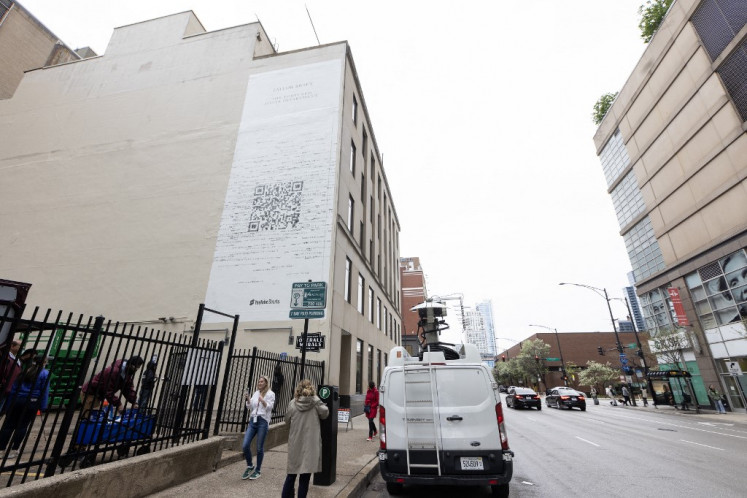Talking about post-truth politics and education
How will students fare in making vital choices and determining a sustainable future for themselves? Will they be influenced by waves of post-truths? Will post-truth ideas define or shape their decision-making capabilities?
Change Size
 In this Sunday, Aug. 29, 2010 file photo, an Oxford English Dictionary is shown at the headquarters of the Associated Press in New York. (AP/Caleb Jones)
In this Sunday, Aug. 29, 2010 file photo, an Oxford English Dictionary is shown at the headquarters of the Associated Press in New York. (AP/Caleb Jones)
E
ver since the Brexit vote and Trump election, the term “post-truth” has gained more currency than people would have expected. The term defines our reality so much that the Oxford Dictionary has named it the Word of the Year 2016.
Post-truth politics is a new phenomenon. The notion had existed in the past and has been around for ages. It is difficult to say when people, or rather the world, started showing a spirited inclination toward this feeling, but there is an increasingly greater stride toward it in the modern era.
So, what is post-truth? It’s an adjective that refers to a culture (especially political), in which arguments are made and decisions are made based on emotional appeal and ignorance of facts and statistics.
A thought is given birth at this stage that centers around the learner generation. How will students fare in making vital choices and determining a sustainable future for themselves? Will they be influenced by waves of post-truths? Will post-truth ideas define or shape their decision-making capabilities?
Read also: A voice missing from the education debate
Each country and culture has its own personal feelings and emotions. Individual people will act based on their own instinctualcalls and sometimes the instinct may be similar to those of other people and cultures. As far as post-truth decisions are concerned, it’s not about learning from mistakes, but about trying out something new, just like new clothes. It’s about eschewing the old and courting the new, driven by a popular human preference.
There’s a section of people, however, who fight against this feeling. They are the ones involved in ridiculing the British who voted “Yes” and the Americans who put Trump in the White House. In both these nations, there were backtrackings – immediate ones, after realizing a “big fallacy.” But the surprise in the US is the number of Americans protesting against Trump. Who did they vote for? Do they feel they made a mistake? In the streets of America, protests overwhelm celebrations. What can one deduce from this?
Facts and figures have come to a stage where they only make their existential presence. They have been made to turn too political to convince people’s conscience. In the eyes of the populace, they exist for achievements, a list for political parties to brag about and influence others. People have developed a feeling that facts and figures do not make a change in the core of their lives. The change that people seek these days is more than achievements. And that change has to do with self-comfort, self-security and an ideal world for themselves.
This is where bigger ideals like secularism, racial tolerance and altruism get the axe. In post-truth ideas, emotions mainly center around the self rather than a whole spectrum of people or the universe itself. The proponents of this idea may most likely get isolated toward the end as it is not a viable solution to problems in most cases. The best example would be Trump’s first month as president when he faced backlash from everywhere.
Read also: Hollywood is getting too much attention for mere seconds of 'diversity'
This is what the new generation needs to be cautious about. They must be taught history and politics for these two subjects to be closely allied to different practices in life. Students must be trained to develop an eye for criticism, an appetite for details of consequences of different kinds of actions and prudence to choose the (possibly) best for themselves and for their communities. The decision-making process should be part of their lessons.
Here is where teachers need to go beyond textbooks and workbooks. Each lesson needs to be crafted in a way that students are persuaded into the following format of learning: first and foremost, they should be led to ignore misinformation and save information.
A majority of our students depend on social media to gather information on any subject, and the latter has not always been a great symbol of trust when it comes to correct information. Verified information should lead them to critical thinking and questioning (remember the English teacher’s WH questions?).
It’s the tedious process of this meticulous learning that will stand as a challenger to the teacher and the students. However, it is a prerequisite to an efficient democratic set-up that cannot tolerate ignorance and impatience. (kes)
***
Pramod Kanakath is a full time teacher and a part-time travel writer and photographer with publications in The Guardian, BBC, CNN, SilverKris (Singapore Airline's inflight mag) and several others. Check out his works at www.premtravels.me and follow him on Instagram at @premkan.
---------------
Interested to write for thejakartapost.com? We are looking for information and opinions from experts in a variety of fields or others with appropriate writing skills. The content must be original on the following topics: lifestyle ( beauty, fashion, food ), entertainment, science & technology, health, parenting, social media, travel, and sports.Send your piece to community@jakpost.com. For more information click here.








